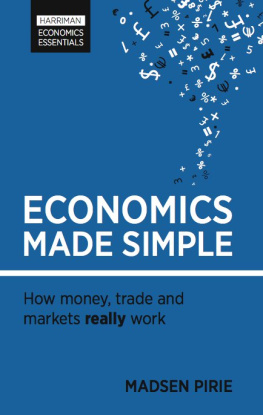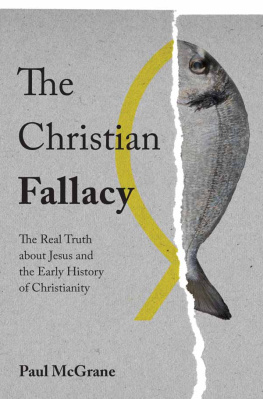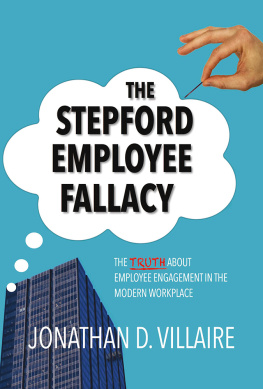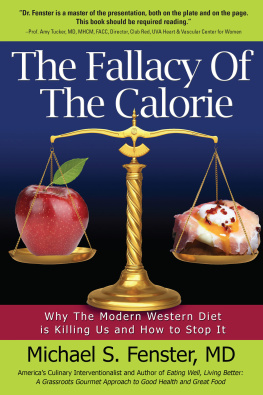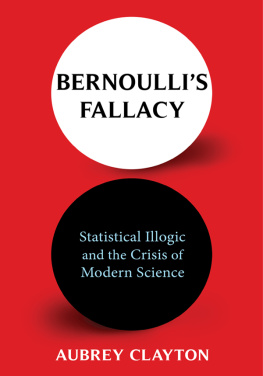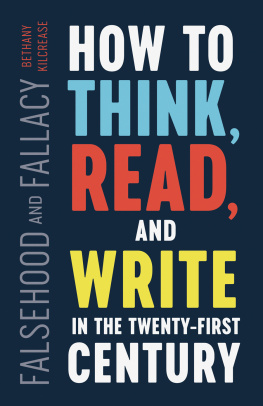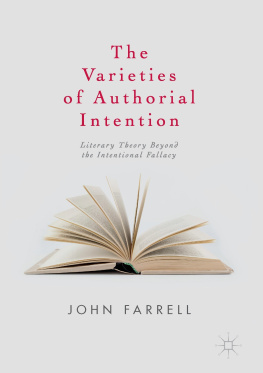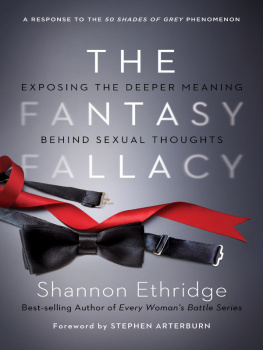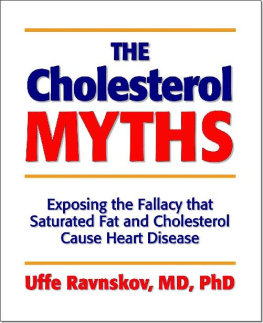The Use and Abuse of Logic

What Philosophers Think - Julian Baggini and Jeremy Stangroom
What Philosophy Is - David Carel and David Gamez
Great Thinkers A-Z - Julian Baggini and Jeremy Stangroom
The Use and Abuse of Logic
Madsen Pirie




Viii
ix
My thanks for their helpful suggestions go to Eamonn Butler and John O'Sullivan. For assistance with the preparation, I thank Tom Lees, Steve Masty, Sam Nguyen and Xander Stephenson. I also thank all those who have aided and encouraged this work, not least the publisher and editor.
Sound reasoning is the basis of winning at argument. Logical fallacies undermine arguments. They are a source of enduring fascination, and have been studied for at least two-and-a-half millennia. Knowledge of them is useful, both to avoid those used inadvertently by others and even to use a few with intent to deceive. The fascination and the usefulness which they impart, however, should not be allowed to conceal the pleasure which identifying them can give.
I take a very broad view of fallacies. Any trick of logic or language which allows a statement or a claim to be passed off as something it is not has an admission card to the enclosure reserved for fallacies. Very often it is the case that what appears to be a supporting argument for a particular contention does not support it at all. Sometimes it might be a deduction drawn from evidence which does not sustain it.
Many of the fallacies are committed by people genuinely ignorant of logical reasoning, the nature of evidence, or what counts as relevant material. Others, however, might be committed by persons bent on deception. If there is insufficient force behind the argument and the evidence, fallacies can add enough weight to carry them through.
This book is intended as a practical guide for those who wish to win arguments. It also teaches how to perpetrate fallacies with mischief at heart and malice aforethought. I have described each fallacy, given examples of it, and shown why it is fallacious. After any points of general interest concerning the history or occurrence of the fallacy, I have given the reader recommendations on how and where the fallacy may be used to deceive with maximum effect.
I have listed the fallacies alphabetically, although a full classification into the five major types of fallacy may be found at the end of the book. It is well worth the reader's trouble to learn the Latin tags wherever possible. When an opponent is accused of perpetrating something with a Latin name it sounds as if he is suffering from a rare tropical disease. It has the added effect of making the accuser seem both erudite and authoritative.
In the hands of the wrong person this is more of a weapon than a book, and it was written with that wrong person in mind. It will teach such a person how to argue effectively, even dishonestly at times. In learning how to argue, and in the process of practising and polishing each fallacy, the user will learn how to identify it and will build up an immunity to it. A working knowledge of these fallacies provides a vocabulary for talking about politicians and media commentators. Replacing the vague suspicion of double-dealing will be the identification of the precise crimes against logic which have been committed.
Knowledge of fallacies can thus provide a defensive as well as an offensive capability. Your ability to spot them coming will enable you to defend yourself against their use by others, and your own dexterity with them will enable you to be both successful and offensive, as you set about the all-important task of making arguments go your way.
Madsen Pirie
The fallacy of abusive analogy is a highly specialized version of the ad hominem argument. Instead of the arguer being insulted directly, an analogy is drawn which is calculated to bring him into scorn or disrepute. The opponent or his behaviour is compared with something which will elicit an unfavourable response toward him from the audience.
Smith has proposed we should go on a sailing holiday, though he knows as much about ships as an Armenian bandleader does.
(Perhaps you do not need to know all that much for a sailing holiday. Smith can always learn. The point here is that the comparison is deliberately drawn to make him look ridiculous. There may even be several Armenian bandleaders who are highly competent seamen.)
The analogy may even be a valid one, from the point of view of the comparison being made. This makes it more effective, but no less fallacious, since the purpose is to introduce additional, unargued, material to influence a judgement.
If science admits no certainties, then a scientist has no more certain knowledge of the universe than does a Hottentot running through the bush.
(This is true, but is intended as abuse so that the hearer will be more sympathetic to the possibility of certain knowledge.)
The fallacy is a subtle one because it relies on the associations which the audience make from the picture presented. Its perpetrator need not say anything which is untrue; he can rely on the associations made by the hearer to fill in the abuse. The abusive analogy is a fallacy because it relies on this extraneous material to influence the argument.
In congratulating my colleague on his new job, let me point out that he has no more experience of it than a snivelling boy has on his first day at school.
(Again, true. But look who's doing the snivelling.)
While politicians delight in both abuse and analogies, there are surprisingly few good uses of the abusive analogy from that domain. A good one should have an element of truth in its comparison, and invite abuse by its other associations. All other things being equal, it is easier to be offensive by making a comparison which is untrue, than to be clever by using elements of truth. Few have reached the memorable heights of Daniel O'Connell's description of Sir Robert Peel:
... a smile like the silver plate on a coffin.
(True, it has a superficial sparkle, but it invites us to think of something rather cold behind it.)
The venom-loaded pens of literary and dramatic critics are much more promising springs from which abusive analogies can trickle forth.
He moved nervously about the stage, like a virgin awaiting the Sultan.
(And died after the first night.)
Abusive analogies take composition. If you go forth without preparation, you will find yourself drawing from a well-used stock of comparisons which no longer have the freshness to conjure up vivid images. Describing your opponents as being like 'straightlaced schoolmistresses' or 'sleazy strip-club owners' will not lift you above the common herd. A carefully composed piece of abusive comparison, on the other hand, can pour ridicule on the best-presented case you could find: 'a speech like a Texas longhorn; a point here, a point there, but a whole lot of bull in between'.


